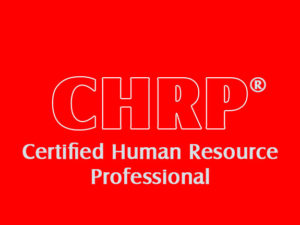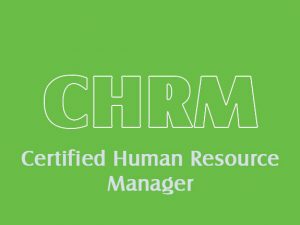Certified Labour Law Professional
- Description
- Curriculum
- Reviews
Labour Laws has a very important role to play in what any HR manager does in a day, though it may not be always apparent. You actually require a good hold of different laws starting from the recruitment, to their onboarding, mandatory paper work, different benefits such as PF, ESI, bonus, gratuity etc.
Also you will need to ensure that the decision of dismissal is taken after proper disciplinary proceedings. If you do not follow proper procedures, the company may have to pay compensation for wrongful termination or reinstate the employee with back wages in some cases.
In fact, as you go up the chain, legal knowledge becomes indispensable. Let’s say you are drafting a leave policy for a company, and fail to check the relevant Shops and Establishments Act of the state, you will almost certainly get it wrong. The consequence can be paying heavy fines by the company if an inspector comes visiting, a potentially negative impact on the brand and embarrassment in front of other employees.
Also if you talk about different functions of HR such as Recruitment, Training and Development, Performance Appraisal, Grievance handling etc then you will notice that a part, small to big, is played by the respective managers as well. But labour laws are something which other people usually don’t have much of an idea and if you make this strong then this will give you a lot of importance and growth in that company.
Some of the key laws covered:
- Introduction
- New amendments (Code on Wages/ Code on Occupational Safety, Health and Working Conditions/ Code on Industrial Relations/Code on Social Security)
- Apprentices Act, 1961
- Bonded Labour System (Abolition) Act, 1976
- Child and Adolescent Labour ( Prohibition and Regulation) Act, 1986
- Contract Labour (Regulation and Abolition) Act, 1970
- Employee’s Compensation Act, 1923
- Employees’ Provident Funds and Miscellaneous Provisions Act, 1952
- Employees’ State Insurance Act, 1948
- Equal Remuneration Act, 1976
- Exemption from Furnishing Returns and Maintaining Register by certain establishments Act, 1988
- Factories Act, 1948
- Industrial Employment (Standing Orders) Act 1946
- Industrial Disputes Act, 1947
- Inter-State Migrant Workmen (Regulation of Employment and Conditions of Service) Act, 1979
- Maternity Benefit Act, 1961
- Minimum Wages Act, 1948
- Payment of Bonus Act, 1965
- Payment of Gratuity Act, 1972
- Payment of Wages Act, 1936
- Sexual Harassment of Women at Workplace (Prevention, Prohibition and Redressal) Act, 2013
- Shop and Establishment ActThe Employment Exchanges (Compulsory Notification of Vacancies) Act, 1959
- Trade Unions Act, 1926
What you’ll learn
- Explain the key Labour Laws and Statutory Compliances
- Explain the common scenarios in workplace
- Know the rights of worker and employer
Are there any course requirements or prerequisites?
- This course will start with the fundamentals. No prior knowledge of Law is required.
- Knowledge of using the internet to browse the web.
- Understanding of English language.
- Interest in the subject.
Who this course is for:
- Suitable for HRs with 0-20 years of experience
- Suitable for Entrepreneurs/Top Management
-
11. Why You Need to be Very Strong in Labour Laws03:17
-
22. Basics of Legal01:48
-
33. Self-Assessment01:59
-
44. List of Key Acts04:40
-
55. Bonded Labour System (Abolition) Act, 197602:48
-
66. Child and Adolescent Labour (Prohibition and Regulation)02:48
-
77. Contract Labour (Regulation and Abolition) Act, 197005:16
-
88. Employee Provident Fund Act 195201:53
-
99. Employee State Insurance Act 194801:53
-
1010. Equal Remuneration Act, 197601:27
-
1111. Industrial Employment Act 194601:06
-
1212. Minimum Wages Act 194801:00
-
1313. POSH Act 201306:42
-
1414. Sexual Harassment Of Women At Workplace Act28:39
-
1515. Downlod All Labour Laws in IndiaText lesson

Featured Courses
-
 SAP HCM Enduser Certification₹9,999By IIHR
SAP HCM Enduser Certification₹9,999By IIHR -
 Certified Human Resource Professio...₹30,000By IIHR
Certified Human Resource Professio...₹30,000By IIHR -
 Certified Human Resources Manager ...₹50,000By IIHR
Certified Human Resources Manager ...₹50,000By IIHR -
 Oracle Fusion HCM Enduser Certific...₹9,999By IIHR
Oracle Fusion HCM Enduser Certific...₹9,999By IIHR -
 Certified Payroll Professional (UAE)₹4,999By IIHR
Certified Payroll Professional (UAE)₹4,999By IIHR -
 Certified Human Resource Generalis...₹20,000By IIHR
Certified Human Resource Generalis...₹20,000By IIHR -
 Certified Payroll Professional (USA)₹9,999By IIHR
Certified Payroll Professional (USA)₹9,999By IIHR -
 Certified Strategic HR Professional₹4,999By IIHR
Certified Strategic HR Professional₹4,999By IIHR




